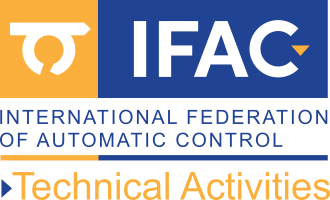Call for submissions to L-CSS Special Issue: “Composite Adaptive and Learning Control with Robotic Applications”
The L-CSS invites submissions for a special issue on “Composite Adaptive and Learning Control with Robotic Applications” (to be included in the 2024 volume of L-CSS). Authors are invited to submit six-page manuscripts for review on this topic. The opening and deadline for initial submissions are July 15, 2023 and August 31, 2023, respectively.
Submission instructions can be found in the L-CSS website at
http://ieee-cssletters.dei.unipd.it/Page_authors.php?p=1
Guest Editors:
- Yongping Pan, Sun Yat-sen University, Shenzhen, China
- Simone Baldi, Southeast University, Nanjing, China
- Chenguang Yang, University of the West of England, Bristol, UK
- Precup Radu-Emil, Politehnica University of Timisoara, Romania
- Haoyong Yu, National University of Singapore, Singapore
For specific questions about the special issue, please contact the lead Guest Editor Prof. Yongping Pan (email: yongppan@gmail.com). For technical details regarding submissions or supplementary materials, please contact the Editor-in- Chief Prof. Maria Elena Valcher (email: meme@dei.unipd.it).
Details on the topics of the special issue can be found below.
******************************************
Composite adaptive control, initially proposed by Prof. Jean-Jacques Slotine from MIT, is an integrated direct and indirect adaptive control strategy that can achieve asymptotic convergence of both tracking and prediction errors while maintaining global stability of the closed-loop system. This strategy can not only enhance parameter convergence, but also boost system robustness by averaging out high-frequency elements. The superior performance of composite adaptive control has been verified in many real-world robotic systems. Nevertheless, without the persistent excitation (PE) condition, the averaging effect is invalid, and parameter convergence is still not guaranteed in composite adaptation. The PE condition has a stringent requirement on the persistent richness of system input-output signals and usually leads to time-consuming learning even though PE exists.
Exploiting online data memory provides a promising way to achieve parameter convergence in adaptive control without PE and has attracted significant attention in recent years. Motivated by composite adaptation, composite learning has been proposed to achieve exponential parameter convergence in adaptive control under interval excitation that is strictly weaker than PE. This strategy takes advantage of regressor extension with online data memory, which relaxes the strict requirements on persistent data richness and long learning duration for parameter convergence. Some other terminologies, such as concurrent learning and memory regressor extension, have also been used to describe this kind of methodology. Composite learning control has been successfully applied to a number of real-world robotic systems.
Regardless of the great progress, composite adaptive and learning control for nonlinear systems with high degrees of freedom and complicated uncertainties is still challenging, making it hard to target real-world robotic systems. Besides, theoretical results and successful robotic applications about the integration of composite adaptive/learning control with other control approaches and with hierarchical control loops are rare.
This special issue aims to tighten the bond between the composite adaptive and learning theory and its robotic applications by developing efficient scientific and engineering solutions and providing visions for future research and development. We welcome both theoretical contributions and robotic applications stemming from a clear control theoretical flavor. Specific topics of interest for this special issue include, but are not limited to:
- Novel constructive approaches of composite adaptive/learning control
- Convergence and robustness of composite adaptive/learning control
- Composite adaptive/learning control under nonlinearly parameterized, nonparametric, or time-varying uncertainties
- The integration of composite adaptive/learning with internal model control, optimal control, model predictive control, sliding mode control, etc.
- The novel applications to any robotic systems, such as robot arms, robot hands, mobile robots, and unmanned vehicles
A manuscript submitted to the special issue should be six pages long in the journal format (style files are available on PaperPlaza), which is a strict limit. The contribution may also be accompanied by supplementary material (up to 9 additional pages are possible). However, according to the journal policy, the value of the submission shall be decided based only the main paper, which must be self-contained, namely, the results can be understood and checked without reading the supplement. The supplement is intended to present complementary information, such as simulations, videos, figures, or examples, but not, for instance, theorem proofs or definitions. Some mathematical background can be added to the supplement, for the reader’s convenience, if it is already existing in the literature.
The manuscripts will be peer-reviewed by international experts. According to the L-CSS policy, the final decision will be made within two rounds of reviewing with no exceptions. The final decision will be reached no later than 5 months from the initial submission deadline. Accepted Papers will be online published within one week from the submission of the final manuscript and in any case no later than 6 months after initial submission.

